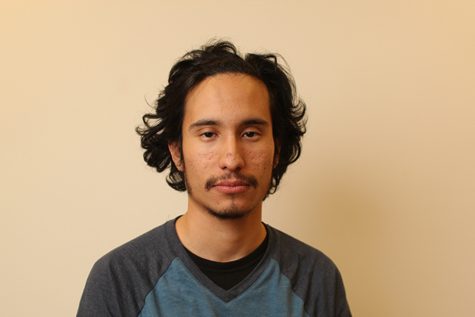Department lacking full-time instructor
Oct 21, 2016
The availability of classes is tantamount to a growing institution’s course selection because it not only keeps the curriculum updated, but also provides essential knowledge for interested students.
Computer science is not one such subject at Contra Costa College this semester.
The only computer science course offered in the 2016 fall schedule, COMP 260 — Intro to Programming, was canceled because no instructor could be assigned to teach the course.
Pamela Rudy, department chairperson of business, computer and related electronics, said, “(We) still have a full-time faculty member (Thomas Murphy) on banked load since he started using (his load) two years ago.”
Murphy, a high performance computing, computer information systems and computer sciences professor, elected to use his banked load at the end of the spring 2014 semester prior to his official retirement scheduled for spring 2017.
Banked load is a United Faculty contract provision for full-time faculty members to accrue overload contract hours when they teach above their required course load, in any given semester. They can use those accumulated hours at a later date if they choose.
Murphy is no longer on campus, but due to his accumulated banked load has been receiving his full-timer’s salary in absence since the beginning of the fall 2014 semester.
Since then adjunct professors have taught computer science classes in his place, but only one or two courses were made available each semester.
Rudy said, “You have to have a master’s or a Ph.D. in computer science or math in order to teach (it) and none of the other faculty within the department has an FSA (Faculty Service Area) credential in computer science.”
Consequently, computer science majors like Marcella Navas are forced to commute to colleges, including Diablo Valley in Pleasant Hill, to complete their lower division computer science requirements.
Navas said, “It’s pretty inconvenient most of the time. But you’ve got to do what you’ve got to do.
“There are times when I don’t want to commute all the way to DVC, but those are the cards I’ve been dealt.”
Rudy said, “It’s frustrating for us not to support computer science in the way that we would like to. Hopefully we can have the process to request a full-time faculty replacement approved.”
Dean of the Natural, Social and Applied Sciences Division Ghada Al-Masri said the process for such a request is an application submitted to district shared governance groups detailing the reasons a department would need to hire someone for a vacant position while they wait for the retirement of an employee to take effect.
Al-Masri said the request form includes the reasons the department needs to hire a new professor, an explanation of what happened to the previous full-time professor and what has been happening in the specific field of study to have it approved.
She said, “Finding someone is difficult. Especially someone in the industry and there are different requirements needed in (computer science).”
Al-Masri said, “We usually find DVC professors who are able to teach these (computer science) classes, but for each it means one fewer course section offered at their home college. We had someone lined for this semester, but it fell through (ultimately) and Pam (Rudy) is looking at someone for the next semester.”
DVC adjunct computer science professor Leslie Asher has been contacted by Rudy to teach a class this spring.
Asher said, “At (CCC), during the 2017 spring semester on Tuesday and Thursday afternoons, I will tentatively teach course COMP 251 — Fundamentals of Computer Science C++. This course introduces students to the field of computer science and focuses on computer programming.
“I plan to teach this course because (Rudy), has asked me to do so,” Asher said.
Another DVC adjunct computer science professor Valerie Colber, who taught at CCC from fall 2015 to spring 2016, said she taught existing courses created and routinely offered by Murphy, but was only given a couple days notice to teach prior to the beginning of each semester. This presented a challenge to create course materials, lectures and to prepare to properly teach the course.
“I wanted to continue to teach at CCC but DVC had already made me a teaching offer long before CCC approached me about teaching this semester. And if you do not accept an offer right when it is made, you lose it (as adjunct faculty),” Colber said.
Murphy said, “I think the district’s policy toward banked load was problematic. I had to use all of it at once and then retire.”
He said a year before his departure he had a meeting with former CCC president Denise Noldon expressing concerns about exactly what has taken place. He was told not to worry.
“I wish I’d had the discussion with (current President) Mojdeh (Mehdizadeh). I think we would have had some productive scheming that would have had better results (for students) from the given constraints,” he said.
Now Murphy is still in contact with students but is not obligated to do any evaluative tasks with the college.
Navas said, “I think (not having a computer science course offered) lowers participation for interested students. For me, having to commute because the class is elsewhere is no big deal. But for others, it could discourage them from even attempting the field.”


